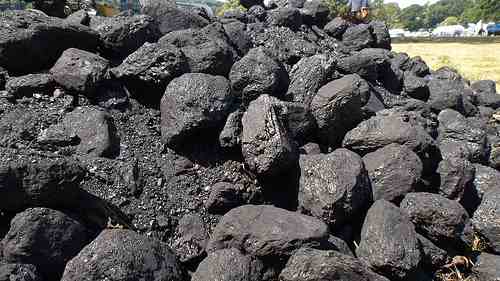

Energy
Coal Dropped From Vietnam’s Future Energy Plans
Vietnam will effectively shelve the equivalent of 70 large coal power plants following an announcement from the Prime Minister Nguyen Tan Dung that the country would drop all further coal-fired power plant projects and move towards cleaner energy.
“This huge win follows tireless work from environmental advocates highlighting the health and environmental impacts of the country’s coal expansion plans,” said Arif Fiyanto, Greenpeace Southeast Asia Coal Campaigner.
“This is one of the biggest victories for environmental and climate advocates in Vietnam, and a crucial step for Southeast Asia where development plans have tended to rely heavily on coal,” said Arif. “Vietnam’s decision is the Paris Agreement in action, and with a clear steer towards renewable energy it sets the benchmark for countries across the region to follow.”
Before the announcement, Vietnam had the biggest plans for coal-fired power plants in Southeast Asia with 44 gigawatts planned (the equivalent of 70 large coal plants) on top of 17 gigawatts under construction. Some of the planned coal projects will be converted to gas and measures will be made to create better investment conditions for wind and solar.
“Vietnam is playing its part in kicking our global addiction to coal. With Indian coal imports falling and China implementing a three-year ban on new coal mines, there is a definite sense that change is in the air in Asia,” said Arif.
“Driven by concerns from people more aware than ever of the health and environmental impacts of fossil fuels, we are on the cusp of an energy revolution. But it needs to move faster and policy announcement such as this are just the first step.”
Greenpeace Southeast Asia last year worked with environmental groups, such as the Vietnam Sustainable Energy Alliance (VSEA), and researchers from Harvard University, to highlight the health impacts of the planned coal expansion. The groundbreaking study used modelling to show how existing coal plants in Vietnam cause an estimated 4,300 premature deaths every year, which would have risen to 25,000 premature deaths per year if the coal expansion plans were approved.


 Environment12 months ago
Environment12 months agoAre Polymer Banknotes: an Eco-Friendly Trend or a Groundswell?

 Features11 months ago
Features11 months agoEco-Friendly Cryptocurrencies: Sustainable Investment Choices

 Features12 months ago
Features12 months agoEco-Friendly Crypto Traders Must Find the Right Exchange

 Energy11 months ago
Energy11 months agoThe Growing Role of Solar Panels in Ireland’s Energy Future





























